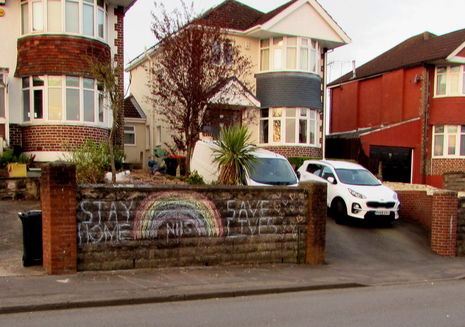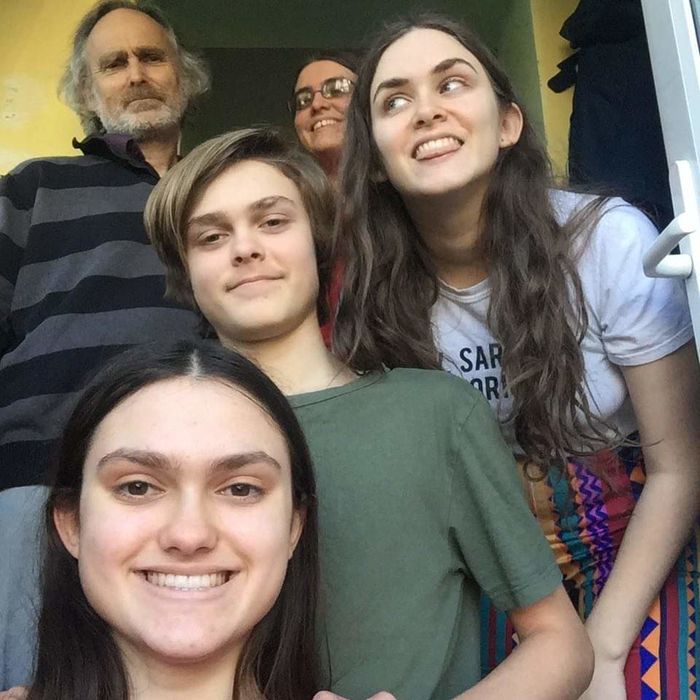I didn’t realise coronavirus was a real concern until it came knocking on my door
An anonymous student writes about their mother falling sick with COVID-19, and the impact on their family’s life, and on their perception of key-workers.

When I left Cambridge to return home after another exciting, albeit tiring Lent term, rumours of Easter Term being cancelled seemed like little more than speculation. Sheltered in the Cambridge bubble, I had been utterly oblivious to the reality of what coronavirus was, and how it would affect us in the months to come. The precautions implemented in our last weeks of term, such as having our food served to us in the Dining Hall instead of through self-service, seemed almost too paranoid. Surely a virus could not affect us that much? Or so I thought.
Things began to sink in a little more after I returned home. I finally had time to read the news reports that I had ignored whilst I was busy finishing off my essays, and started to understand the gravity of the situation. So by the time Stephen Toope announced that Easter Term would be conducted remotely and Boris Johnson announced the country would be going into lockdown, I realised that not only were these measures important, they were crucial and even inevitable.
“this positive outlook soon changed when my mother started to show symptoms of coronavirus.”
At first, life was relatively normal for an Easter holiday. I spent the weekdays babysitting my younger siblings whilst my parents, who are both key workers in the NHS, went to work every morning. It was strange to be at home and not be able to meet up with any of my friends, but group FaceTime calls made us feel connected despite the circumstances. I also appreciated having more time to spend with my family at the weekends, and was grateful for the weekly structure in the household and the sense of normality that this instigated. I even enjoyed the prospect of having more time to do things that I had been putting off, such as reading and baking, and started to relish the slower pace of life in quarantine.
However, this positive outlook soon changed when my mother started to show symptoms of coronavirus. I knew that my parents were likely to get coronavirus due to the nature of their work - I had even seen it as more of an inevitability - yet it still caught me by surprise. Although I knew it was very likely that my mother would recover, which she thankfully did, there was still a niggling worry that she might be one of the unlucky people who develop a severe and potentially fatal illness. I think this was the first time that we, as a family, realised that it was very possible that we would be severely affected by coronavirus and that, like families of other key workers, we were more likely to be affected than most. Maybe it was just spending more time together, but I like to believe this experience did bring me and my siblings closer. We realised that we had to lift each other’s spirits in order to lift our own during this time of uncertainty - something we had thankfully never had to do before.
“This experience has given me a new appreciation for people who selflessly continue to go to work each day, one that I wish I had had from the start.”
Before this, I had gone out each week to clap for the key workers and had been incredibly thankful for everyone who went to work each day, willingly exposing themselves to a deadly virus, in order to ensure the country and economy stay afloat in these challenging times. Yet I don’t think I realised the true extent of this sacrifice until the virus entered my home.
Being forced to stay at home all day, every day, can make you forget there is a global pandemic going on. But during this time, I was inundated with more and more articles about doctors and nurses contracting and dying from the virus, leaving their families grieving. I remember watching a video of a nurse in tears pleading for people to stay at home and to respect that she, like so many, was putting her own as well as her family’s life at risk each day by going into work. This made me realise what a phenomenal sacrifice doctors, nurses, teachers, police officers, delivery workers, supermarket staff, transport workers, firefighters and so many other key workers make each day, often without giving a second thought. With an estimated 10 million key workers helping the fight against coronavirus in Britain, and many more throughout the world, so many families worry about the health of their loved ones each day and many are suffering to greater extents than I could even imagine.
However, it took the virus literally knocking on my front door for me to realise that this pandemic is more than just an inconvenience. Rather, it is something that can and will affect so many people’s lives in irreparable ways, whether it be directly by the virus or through the psychological, social or even financial impact of a large-scale lockdown. This experience has given me a new appreciation for people who selflessly continue to go to work each day, one that I wish I had had from the start.
I worry that as things start to improve, I, and many others, will forget the immense sacrifices so many people have made during this pandemic. I worry that, as we continue to move forward, we will look at these times with rose-tinted glasses, until the next pandemic hits. But I hope that the display of courage and hope in the face of immeasurable uncertainty will continue to remind me to be grateful for my health, my family and simple pleasures, like seeing friends – things that I took for granted not too long ago.
 News / Cambridge and Manchester Universities meet for innovation partnership26 February 2026
News / Cambridge and Manchester Universities meet for innovation partnership26 February 2026 News / Private school teacher who lied about Cambridge degree barred from teaching27 February 2026
News / Private school teacher who lied about Cambridge degree barred from teaching27 February 2026 News / Cambridge academics sign open letter criticising research funding changes22 February 2026
News / Cambridge academics sign open letter criticising research funding changes22 February 2026 News / Judge Business School advisor resigns over Epstein and Andrew links18 February 2026
News / Judge Business School advisor resigns over Epstein and Andrew links18 February 2026 Theatre / The Memory of Water is dazzlingly well done27 February 2026
Theatre / The Memory of Water is dazzlingly well done27 February 2026









![How to Create an Attractive Freelancer Portfolio [5 Tips & Examples]](https://www.varsity.co.uk/images/dyn/ecms/320/180/2026/02/vitaly-gariev-ho2tNOWZYXM-unsplash-scaled.jpg)